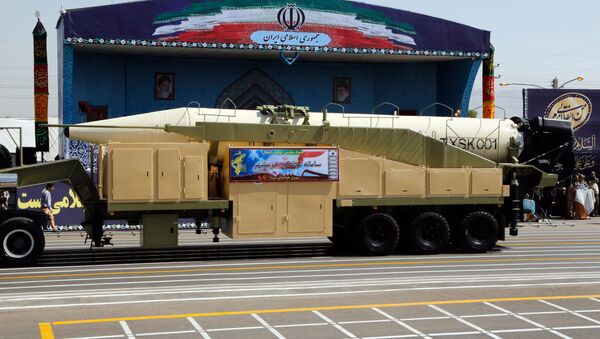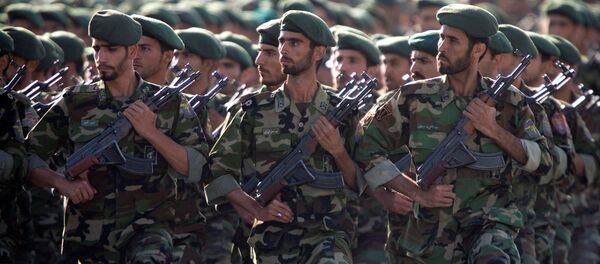The new ballistic missile, with a range of 2,000 kilometers (1,242 miles), is capable of carrying multiple independently targetable re-entry vehicles over a distance of 1,800 kilometers.
According to Gen. Hajizadeh, training in the use of the ballistic missile has already begun.
The Islamic Republic's missile and nuclear programs have been continuously criticized as posing a threat.
On July 14, 2015, China, France, Russia, the United Kingdom, the United States and Germany, collectively referred to as the P5+1 group, signed the JCPOA with Iran on the latter's nuclear program. The deal stipulated a gradual lifting of anti-Iran sanctions in exchange for Tehran's assurances that its nuclear program would remain peaceful in nature.
In August, Iran's defense minister stated Tehran would not abandon its missile program despite international condemnation. In September, the US imposed new sanctions on Iran over the ballistic missile program and "cyberattacks".
Tehran continues to develop and test ballistic missiles due to its constant vigilance about national security, Former adviser to the Iranian foreign ministry Sabbah Zanganeh told Sputnik.



